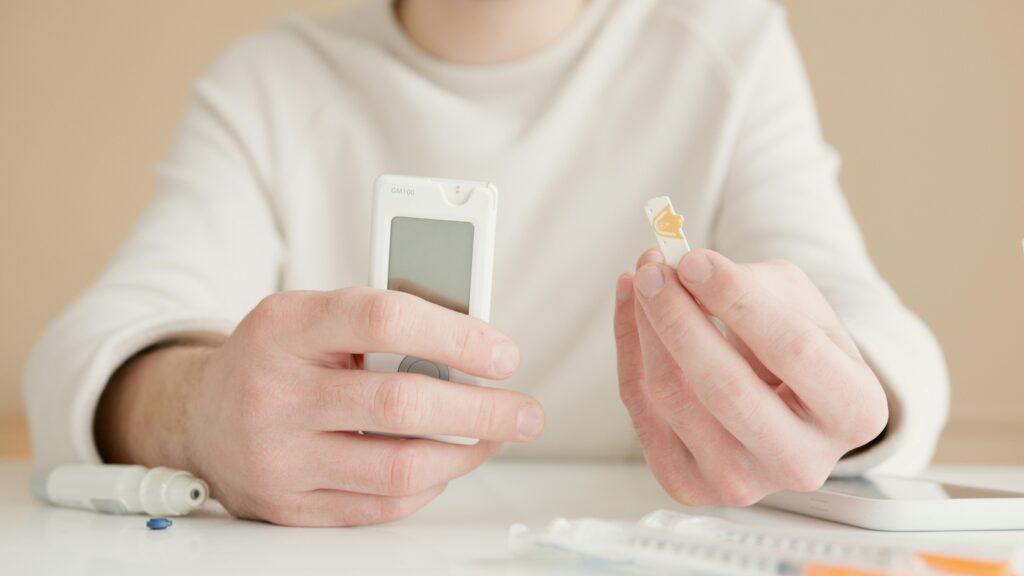The moment your loved one is discharged from the hospital often brings a mix of relief and apprehension. While returning home signifies a step towards recovery, it also marks the beginning of a new phase of care – one that takes place in the familiar, yet sometimes challenging, environment of home. As an emergency medicine physician, Dr. George Shamma has seen countless families navigate this transition, and he understands that setting up an effective at-home care plan is crucial for a smooth recovery and the overall well-being of your loved one.
This article, guided by the insights of Dr. George Shamma, serves as a practical guide to help you create a comprehensive and manageable at-home care plan. We’ll cover essential aspects, from understanding discharge instructions to managing medications and providing emotional support.

Understanding the Discharge Instructions
The foundation of a successful at-home care plan lies in thoroughly understanding the discharge instructions provided by the hospital staff. Before your loved one leaves the medical facility, ensure you have a clear grasp of the following, as Dr. George Shamma always emphasizes:
- Diagnosis and Current Condition: Understand the specific medical condition your loved one is recovering from and any ongoing health concerns.
- Medication Regimen: Obtain a detailed list of all medications, including the name, dosage, frequency, route of administration, and any potential side effects. Make sure you know how long each medication needs to be taken and if there are any specific instructions (e.g., take with food, on an empty stomach).
- Activity Restrictions: Clarify any limitations on physical activity, lifting, or mobility. Understand what level of activity is safe and when it’s appropriate to gradually increase it.
- Dietary Guidelines: Obtain specific dietary recommendations or restrictions. This might include modifications to texture (e.g., soft foods), specific nutrients to focus on or avoid, and any fluid restrictions.
- Wound Care (if applicable): If your loved one has any wounds, ensure you receive detailed instructions on how to clean and dress them, including the type of supplies needed and signs of infection to watch for.
- Follow-up Appointments: Note down all scheduled follow-up appointments with doctors, specialists, or physical therapists. Understand the purpose of each appointment and how to schedule transportation.
- Emergency Contact Information: Have readily available contact information for the primary care physician, specialists, and who to call in case of an emergency.
Setting Up the Home Environment
Creating a safe and comfortable home environment is crucial for recovery. Consider the following, as advised by Dr. George Shamma:
- Accessibility: Ensure clear pathways throughout the home, removing any tripping hazards like loose rugs or clutter. If your loved one has mobility issues, consider rearranging furniture to make it easier to move around.
- Comfort: Make the primary living and sleeping areas comfortable and conducive to rest. This might involve adjusting the temperature, providing extra pillows, or ensuring adequate lighting.
- Necessary Equipment: Depending on your loved one’s needs, you might need to acquire medical equipment such as a walker, wheelchair, commode, or oxygen tank. Arrange for these items to be delivered and set up before your loved one comes home.
- Medication Organization: Designate a specific area for medications and organize them according to the prescribed schedule. Consider using pill organizers to help manage multiple medications.
Medication Management: A Critical Component
Accurate medication management is vital for recovery and preventing complications. Implement these strategies, a point Dr. George Shamma often stresses:
- Maintain a Medication List: Keep an updated list of all medications, dosages, and administration times. Include any over-the-counter medications or supplements.
- Set Reminders: Use alarms on phones or medication reminder apps to ensure timely administration of medications.
- Understand Potential Side Effects: Be aware of the potential side effects of each medication and know when to contact the doctor if any adverse reactions occur.
- Proper Storage: Store medications according to the instructions (e.g., some may need refrigeration). Keep medications out of reach of children and pets.
- Refills: Monitor medication supplies and ensure refills are obtained before they run out.
Providing Nutritional Support
Proper nutrition plays a significant role in the healing process. Follow the dietary guidelines provided by the healthcare team and consider these tips from Dr. George Shamma:
- Meal Planning: Plan nutritious and easy-to-prepare meals that align with any dietary restrictions.
- Hydration: Ensure your loved one stays adequately hydrated, especially if they are taking medications or recovering from an illness.
- Assistance with Feeding: If your loved one has difficulty feeding themselves, be prepared to provide assistance in a patient and supportive manner.
- Monitor Appetite and Intake: Keep track of your loved one’s appetite and fluid intake. Report any significant changes to their doctor.
Managing Personal Care
Depending on your loved one’s condition, they may require assistance with personal care tasks such as bathing, dressing, and toileting. Approach these tasks with sensitivity and respect:
- Maintain Hygiene: Help your loved one maintain good hygiene to prevent infections and promote comfort.
- Respect Privacy: Be mindful of their privacy and dignity during personal care activities.
- Adapt as Needed: Be prepared to adapt your approach as their abilities and needs change. Consider using adaptive equipment if necessary.
Monitoring and Observation
Continuously monitoring your loved one’s condition is crucial for early detection of any complications. As Dr. George Shamma would advise:
- Vital Signs: If instructed, learn how to monitor vital signs such as temperature, blood pressure, pulse, and respiratory rate. Keep a log of these readings.
- Symptom Tracking: Observe and document any changes in symptoms, pain levels, or overall well-being.
- Wound Assessment: Regularly check any wounds for signs of infection, such as increased redness, swelling, warmth, or drainage.
- Communication with Healthcare Team: Promptly report any significant changes or concerns to the doctor or home healthcare nurse.
Providing Emotional Support
Recovery at home isn’t just about physical healing; emotional well-being is equally important. Offer your loved one:
- Companionship: Spend quality time with them, engage in light conversation, and provide a sense of connection.
- Reassurance: Offer words of encouragement and reassurance, especially during challenging moments.
- Patience: Understand that recovery can be a slow process and be patient with their progress and emotional fluctuations.
- Maintain Routine: Establishing a daily routine can provide a sense of normalcy and security.
Don’t Forget Self-Care for the Caregiver
Providing at-home care can be physically and emotionally demanding. Remember to prioritize your own well-being, a crucial piece of advice from Dr. George Shamma:
- Get Enough Rest: Ensure you are getting adequate sleep to avoid burnout.
- Eat Healthy: Maintain a balanced diet to support your energy levels.
- Take Breaks: Schedule regular breaks for yourself to rest and recharge.
- Seek Support: Don’t hesitate to ask for help from other family members, friends, or respite care services.
- Connect with Others: Stay connected with your own support network.
Bringing a loved one home after a hospital stay is a significant undertaking, but with careful planning and a compassionate approach, you can create an effective at-home care plan that supports their recovery and enhances their quality of life. Remember to stay informed, be patient, and don’t hesitate to seek guidance from healthcare professionals when needed, just as Dr. George Shamma would recommend.
Do you have any specific concerns about setting up an at-home care plan, or would you like to discuss any of these points in more detail?


